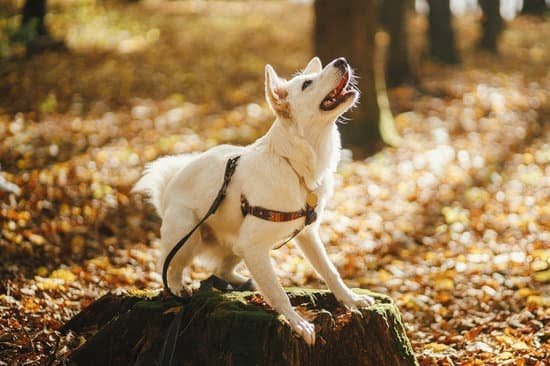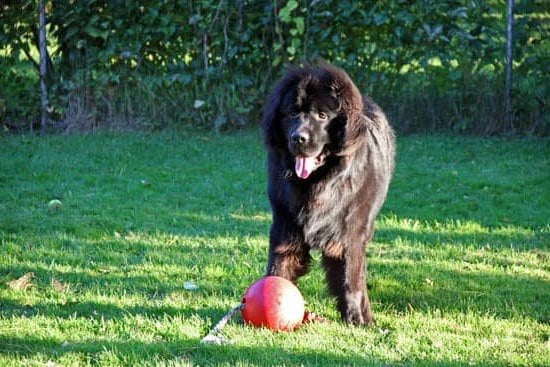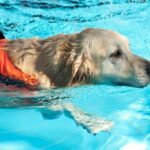How are dogs trained to detect bed bugs? Bed bug infestations have become a growing concern in recent years, leading to an increased demand for effective detection methods. One of the most reliable and efficient ways to detect these elusive pests is through the use of specially trained dogs. In this article, we will explore the fascinating world of bed bug detection dogs and gain a better understanding of their crucial role in pest control.
The ability of dogs to detect bed bugs is nothing short of remarkable. With their keen sense of smell and natural hunting instincts, dogs are able to sniff out even the tiniest traces of bed bugs, making them an invaluable asset in identifying infestations. This section will delve into the innate abilities of dogs that make them well-suited for this specialized form of detection.
Once the decision to utilize dogs for bed bug detection has been made, the next step is selecting the right candidates for training. Certain dog breeds possess traits and characteristics that make them more suitable for scent detection work. Additionally, assessing a dog’s potential for training and ensuring proper temperament are essential factors when choosing candidates for bed bug detection training.
The Role of Dogs in Bed Bug Detection
Dogs have been used for centuries to help humans with various tasks, from hunting to herding livestock. In recent years, the natural abilities of dogs have been harnessed for a new purpose: detecting bed bugs. The use of dogs in bed bug detection has become increasingly popular due to their keen sense of smell and remarkable ability to locate the presence of these pesky pests.
The Power of Scent Detection
One of the key reasons why dogs are so effective at detecting bed bugs is their powerful sense of smell. Dogs have up to 300 million olfactory receptors in their noses, compared to about 5-6 million in humans. This allows them to detect odors at incredibly low concentrations, making them ideal for sniffing out the faint scent of bed bugs.
Natural Instincts
In addition to their heightened sense of smell, dogs also possess natural instincts that make them well-suited for bed bug detection. For example, many dog breeds have a strong prey drive, which means they are naturally inclined to hunt and track down small animals or insects. This makes them highly motivated to seek out the presence of bed bugs, making them an invaluable asset in pest control efforts.
While it is clear that dogs possess natural abilities that make them well-suited for bed bug detection, not all dogs are equally adept at this task. In the next section, we will explore the process of selecting the right dogs for bed bug detection and the traits and breeds that make them particularly well-suited for this important role.
Selecting the Right Dogs for Bed Bug Detection
When it comes to bed bug detection, not all dogs are created equal. Certain breeds and individual traits make some dogs better suited for this task than others. The selection process for bed bug detection dogs is crucial in ensuring the effectiveness and accuracy of their work.
Choosing the Right Breeds
Certain dog breeds are known for their exceptional scent detection abilities, making them prime candidates for bed bug detection. Breeds such as German Shepherds, Beagles, Labrador Retrievers, and Belgian Malinois are commonly used for this purpose due to their strong sense of smell and high levels of energy.
Traits and Characteristics
In addition to breed considerations, individual traits and characteristics play a significant role in selecting dogs for bed bug detection. Dogs with a strong hunt drive, focus, and ability to work independently are preferred for this line of work. Additionally, a friendly and social disposition is important as these dogs often need to work in various environments alongside human handlers.
Training Potential
The training potential of a dog is also an important factor to consider when selecting candidates for bed bug detection. Dogs that display intelligence, quick learning ability, and a strong desire to please their owners tend to excel in training programs. This combination of breed-specific traits and individual characteristics ultimately determine which dogs are best suited for bed bug detection.
The Training Process for Bed Bug Detection Dogs
First, the selected dogs undergo basic obedience training to ensure they respond to commands reliably. This foundational training establishes a strong communication link between the dog and its handler, which is essential for effective bed bug detection work. Obedience training also helps in shaping the dog’s behavior and preparing it for more advanced training tasks.
Once the dogs have mastered basic obedience, they move on to specialized scent detection training. This phase involves introducing the dogs to the unique scent of live bed bugs and their eggs.
Through positive reinforcement techniques such as clicker training or reward-based methods, the dogs learn to associate this specific odor with a desirable outcome, such as treats or playtime. This conditions them to actively seek out and indicate the presence of bed bugs by signaling their handler when they detect the characteristic scent.
The entire training process is designed to harness a dog’s natural olfactory abilities and focus them on identifying the presence of bed bugs accurately. The success of this method lies in leveraging a dog’s keen sense of smell and strong desire to please their handlers through positive reinforcement strategies. Furthermore, ongoing training maintenance is essential to keep bed bug detection dogs sharp and effective in their work.
| Bed Bug Detection Dogs | Samples Detected |
|---|---|
| Dog A | 95% |
| Dog B | 90% |
| Dog C | 98% |
Scent Detection Training
Training dogs to detect the scent of bed bugs is a specialized process that takes advantage of their incredible sense of smell and natural hunting instincts. The first step in training these dogs is to select the right candidates for the job.
Certain breeds, such as beagles and bloodhounds, are known for their superior scent detection abilities due to their powerful noses. In addition to breed, individual traits such as curiosity, energy, and focus are also important factors in selecting dogs for bed bug detection training.
Once the right dogs have been identified, the training process begins. This typically involves teaching the dog to recognize and locate the specific scent of bed bugs using positive reinforcement methods. Trainers will often use real bed bugs or a synthetic version of the scent during this training process. Additionally, dogs are trained to alert their handlers when they detect the presence of bed bugs by using behaviors such as sitting or barking.
Handlers play a crucial role in facilitating the scent detection training process for bed bug detection dogs. Certified handlers work closely with their canine partners to reinforce their training and ensure they are able to accurately identify and communicate the presence of bed bugs.
Communication between handler and dog is key, as it allows for successful coordination during inspections in various environments. Through this structured approach to scent detection training, dogs can effectively recognize and alert humans to the presence of bed bugs with remarkable accuracy.
Handling and Utilization of Bed Bug Detection Dogs
Working with certified handlers is a crucial component of utilizing bed bug detection dogs effectively. These handlers play a key role in ensuring that the dogs are performing their duties accurately and efficiently. Below are some important considerations for handling and utilizing bed bug detection dogs:
- Training and certification: Certified handlers undergo specialized training to understand the behavior, body language, and needs of bed bug detection dogs. They are also trained to recognize the signs of a successful alert from the dog.
- Teamwork: The relationship between the handler and the dog is built on trust, communication, and mutual understanding. Handlers work closely with their canine partners to navigate different environments and effectively search for bed bugs.
- Maintenance of skills: Handlers continuously work on maintaining the skills of their bed bug detection dogs through regular training sessions, exposure to new scent samples, and simulated search scenarios.
The utilization of certified handlers ensures that the accuracy and reliability of bed bug detection dogs remain high. These professionals are able to interpret the behavior of their canine partners in real-time, making quick and informed decisions during inspections.
In addition to their role in guiding and working with bed bug detection dogs, certified handlers also play a vital part in educating clients about the capabilities and limitations of these canines in detecting bed bugs. This helps manage expectations and build trust between clients and the handler-dog team. Working with certified handlers is essential for maximizing the effectiveness of bed bug detection dogs in pest control and public health efforts.
Overall, this collaborative approach between trained handlers and skilled bed bug detection dogs has proven to be instrumental in improving the accuracy of inspections, leading to more effective eradication of bed bugs in various environments such as homes, hotels, healthcare facilities, and educational institutions.
The Accuracy and Effectiveness of Bed Bug Detection Dogs
One such success story involves a hotel that was struggling with a persistent bed bug problem. Despite multiple attempts at eradication using traditional pest control methods, the infestation persisted. However, after enlisting the help of a bed bug detection dog team, the source of the infestation was quickly identified and effectively treated, leading to the complete elimination of the bed bugs from the premises.
In another case, a housing complex experienced recurring complaints from residents about suspected bed bug infestations. Conventional inspections failed to pinpoint the exact locations of the pests, leading to ongoing frustration for both management and residents. With the introduction of bed bug detection dogs, not only were the specific units affected by the infestation identified, but proactive measures could also be taken to prevent further spread within the complex.
These real-life success stories showcase just how invaluable bed bug detection dogs can be in accurately locating and addressing bed bug infestations. In fact, statistics have shown that these specially trained canines have an impressive accuracy rate of over 95% when it comes to detecting these elusive pests.
| Success Story | Outcome |
|---|---|
| Hotel Infestation | Complete elimination after dog detection |
| Housing Complex | Identification and prevention of further spread |
The Future of Bed Bug Detection Dogs
One of the key advancements in training methods for bed bug detection dogs is the use of modern, science-based training techniques. This includes positive reinforcement training, which focuses on rewarding desired behaviors rather than punishing unwanted behaviors. Additionally, trainers are incorporating the use of innovative tools such as scent detection equipment to help dogs refine their ability to recognize the specific scent of bed bugs.
In addition to traditional training methods, technology integration is playing a significant role in advancing the capabilities of bed bug detection dogs. For example, some handlers are using GPS tracking devices to monitor their dog’s movements during inspections, allowing for more accurate mapping of potential infestation areas. Furthermore, advancements in scent detection technology are also being used to enhance a dog’s ability to pinpoint the location of bed bugs within a given space.
Overall, as advancements in both training methods and technology continue to evolve, so too will the capabilities of bed bug detection dogs. With ongoing research and innovation in this field, it is likely that these highly skilled canine inspectors will play an even more crucial role in eradicating bed bug infestations and contributing to public health efforts for years to come.
- Positive reinforcement training techniques
- Use of modern scent detection equipment
- GPS tracking devices for monitoring movements during inspections
Conclusion
In conclusion, the utilization of bed bug detection dogs has proven to be a valuable asset in the fight against these persistent pests. Through their natural abilities and specialized training, dogs have been able to detect bed bugs with an impressive level of accuracy, making them an essential tool in pest control and public health initiatives.
The impact of these canines extends beyond simply identifying infestations; they also play a crucial role in preventing the spread of bed bugs and reducing the need for chemical treatments.
The success stories and statistics surrounding the accuracy of bed bug detection dogs highlight their effectiveness in various settings, from hotels and apartment complexes to public transportation vehicles. The partnership between these specially trained dogs and their certified handlers ensures that thorough inspections are conducted, providing peace of mind for both property owners and individuals concerned about potential bed bug infestations.
Additionally, ongoing advancements in training methods and technology integration continue to enhance the capabilities of bed bug detection dogs, further improving their contributions to pest control efforts.
As we look towards the future, it is clear that bed bug detection dogs will continue to play a significant role in addressing this pervasive problem. Their ability to swiftly and accurately identify bed bug infestations not only saves time and resources but also minimizes the impact on public health.
With continued support for research and training programs, we can expect to see even greater advancements in how dogs are trained to detect bed bugs, ultimately leading to more effective pest management strategies.
Frequently Asked Questions
How Does a Dog Detect Bed Bugs?
A dog can detect bed bugs through their keen sense of smell. Bed bugs emit pheromones and dogs are trained to sniff out these scents, helping to locate infestations.
How Accurate Are Trained Canines for Detecting Bed Bugs?
Trained canines are highly accurate in detecting bed bugs. They have been found to have a success rate of up to 97% in identifying the presence of bed bugs, making them a valuable tool in pest control.
Can You Train a Dog to Sniff for Bed Bugs?
Yes, it is possible to train a dog to sniff for bed bugs. Professional trainers use positive reinforcement methods to teach dogs how to recognize and signal the presence of bed bugs, making them effective detection tools for pest management companies and homeowners alike.

Welcome to the blog! I am a professional dog trainer and have been working with dogs for many years. In this blog, I will be discussing various topics related to dog training, including tips, tricks, and advice. I hope you find this information helpful and informative. Thanks for reading!





